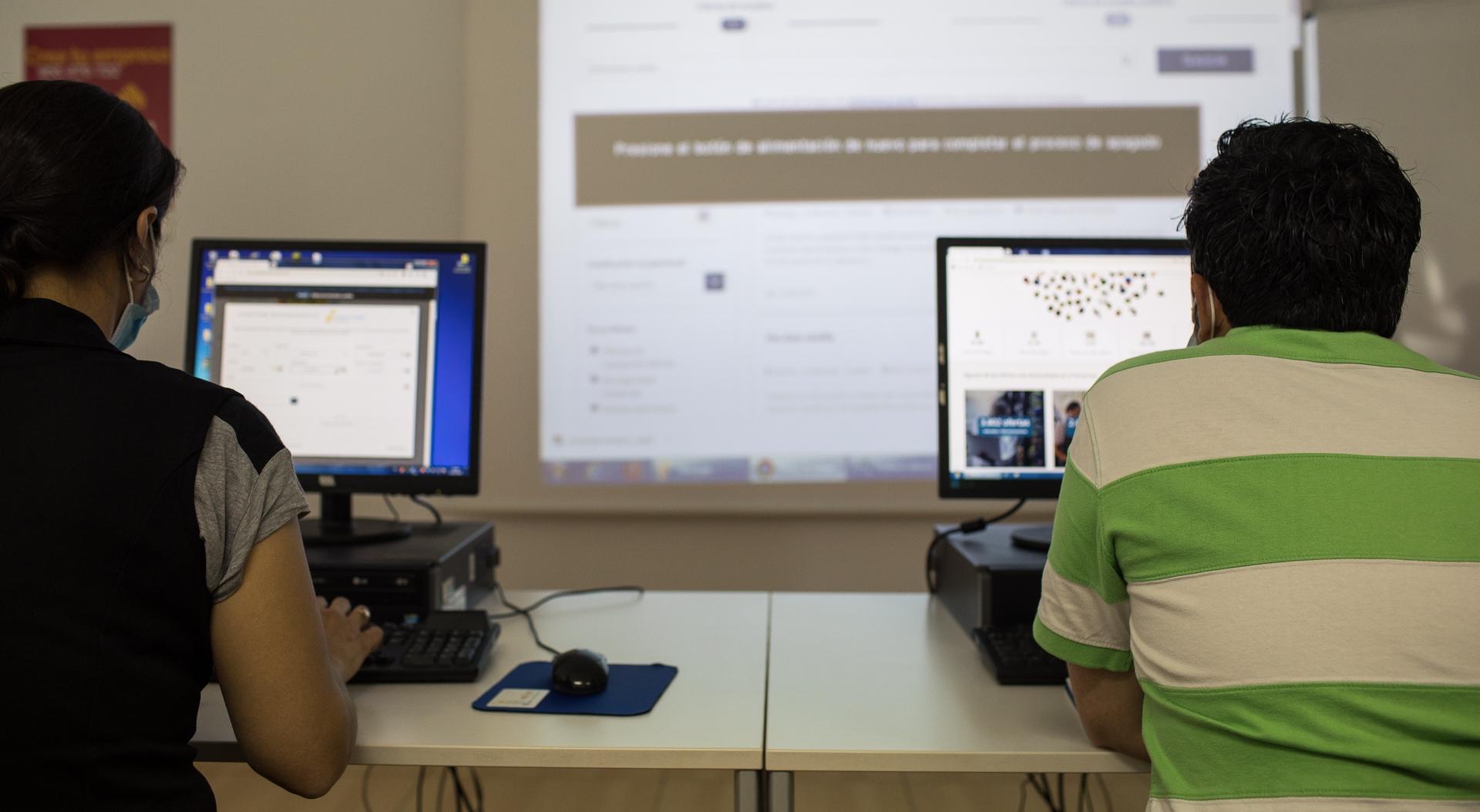

How can Artificial Intelligence transform the future of socio-labour inclusion?
The 12th Forum on Employment and Entrepreneurship will delve into how Artificial Intelligence impacts on vulnerable groups and their employability, as well as the importance of this impact being fair and inclusive
In a rapidly advancing technological landscape, it is crucial to stop and think about the role of artificial intelligence in our working reality. According to a McKinsey report, it is estimated that around 800 million working people could experience significant changes due to automation. A fact that invites us to reflect on how AI can influence equal opportunities and the construction of a more inclusive future.
It is essential that advances in technology not only create new opportunities, but also contribute to reducing socio-occupational inequalities. This is the only way to ensure that all groups benefit from the fruits of innovation.
AI as a tool for inclusion
Can AI help us build a more inclusive society?
To address this question, this year we are incorporating the theme of artificial intelligence and its impact on social and labor inclusion for vulnerable populations at our 12th Forum on Inclusive Employment and Entrepreneurship of the European Network of Innovation for Inclusion. We will be joined by Nerea Luis Mingueza, an AI consultant and expert, who will guide us in reflecting on AI's role in social innovation projects aimed at inclusion.
AI is not just a set of algorithms; it is a powerful tool that, if used wisely, can open doors. Today, it is transforming social innovation through tailored solutions for the labor inclusion of vulnerable individuals. With data analysis tools and learning platforms, we can identify job opportunities, train individuals in specific skills, and connect disadvantaged people with employers who value diversity.
Interestingly: A World Economic Forum report indicates that by 2025, automation could create 97 million new jobs, many of which will require advanced digital skills. While this shift comes with significant challenges, it can also offer new opportunities for vulnerable groups if appropriate training and education policies are implemented.
Among the challenges of such a radical transformation is the discussion of how AI can be a generator of equal opportunities—a debate that is just beginning, with real-world applications still in their infancy.
During the forum, we will also share information about a new Action Against Hunger project that will make use of artificial intelligence. These projects aim to improve the employability of people at risk of exclusion by integrating AI throughout the entire journey. Their methodology ranges from partially automating the journey using AI's analytical and predictive capabilities to providing mediation services with companies, including contextual analysis, social diagnostics for each participant, and the design of training and personal development pathways.
On October 24, we invite you to be part of the 12th Forum on Inclusive Employment and Entrepreneurship, where we will discuss how to create fairer and more equitable workplaces through the use of AI, project scaling, and community-focused approaches.
A collaborative future
Artificial intelligence has the potential to be a democratizing force, but this depends on how it is implemented. As we enter this new labor era, it is crucial to ensure that its benefits are distributed equitably.
Nerea Luis Mingueza will share her insights on how AI can positively influence the labor market and vulnerable groups. Her experience and knowledge will help us understand how, through technology, we can build a future where social inclusion is a tangible reality, not just an ideal—a labor future that prioritizes humanity and revitalizes the social contract underpinning our democracies.
The forum will also become a space for debate for professionals, companies and organisations to reflect on how these new tools are impacting their communities. Thus, attendees will be able to open dialogues on the design of inclusive algorithms, public policies that ensure that AI benefits everyone or ways to promote education and training in digital skills for groups at risk of exclusion.
Ultimately, we must approach AI as a powerful ally for social inclusion, provided it is used responsibly and with vision.
